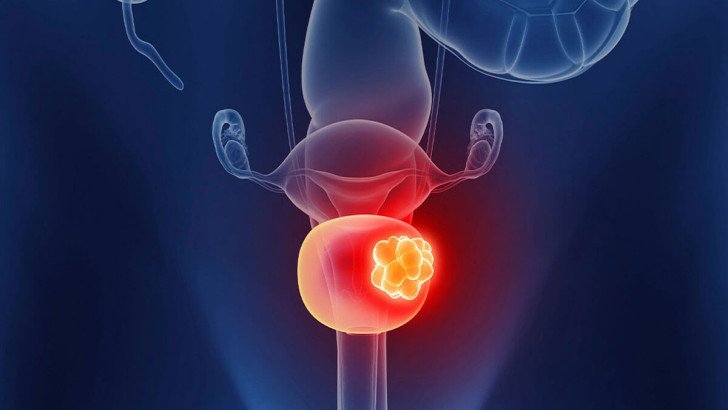
Bladder Cancer: Causes, Symptoms, Side Effects, and Treatments
Bladder cancer, a serious condition affecting thousands globally, begins in the bladder’s lining and ranges from non-invasive to metastatic forms. In 2025, Germany, renowned for cancer treatment in Germany, leads in dendritic cell therapy for bladder cancer, an innovative immunotherapy for bladder cancer offering hope for patients with non-muscle-invasive bladder cancer (NMIBC) and advanced bladder cancer.
Bladder cancer develops when cells in the bladder’s inner lining (transitional epithelium) grow uncontrollably, forming tumors. Most cases are transitional cell carcinoma (TCC), also known as urothelial carcinoma, which can affect the bladder, ureters, or kidneys. Non-muscle-invasive bladder cancer (NMIBC) remains in the lining, while muscle-invasive bladder cancer (MIBC) or advanced bladder cancer invades deeper layers or metastasizes to lymph nodes or distant organs (e.g., lungs, liver).
Bladder cancer causes are multifactorial, with key risk factors increasing susceptibility:
Smoking: Cigarette smoking triples the risk, as carcinogens in tobacco are excreted in urine, damaging the bladder lining.
Chemical Exposure: Occupational exposure to amines, benzene, aniline dyes (used in textiles, rubber, dyes), or other chemicals in hairdressing, painting, or petrochemical industries.
Radiation and Chemotherapy: Prior pelvic radiation or certain chemotherapy drugs (e.g., cyclophosphamide) increase risk.
Chronic Bladder Infections: Persistent infections or irritation may lead to squamous cell carcinoma, a rare subtype.
Age and Gender: Risk rises with age (>55); men are affected twice as often as women.
Family History: Rare but increased risk with familial bladder cancer cases, though genetics is not a primary cause.
Family Risk Factors for Bladder Cancer
Family risk factors for bladder cancer include:
Family history of bladder or urinary tract cancers.
Genetic predispositions, though less significant than environmental factors.
Shared lifestyle risks (e.g., smoking or occupational exposures).
Bladder Cancer Symptoms Early Stage
Bladder cancer symptoms early stage often mimic urinary tract infections (UTIs):
Hematuria: Blood in urine, the most common sign, appearing pink, red, or brown, often painless.
Frequent or urgent urination.
Pain or burning during urination.
Lower back or pelvic pain (less common).
Unexplained weight loss or fatigue (in advanced cases).
These symptoms warrant medical evaluation, especially if persistent after antibiotic treatment for suspected UTIs.
Bladder Cancer Diagnostic Tests
Accurate bladder cancer diagnostic tests are essential for guiding dendritic cell therapy and other treatments. German cancer clinics use advanced diagnostics to confirm diagnosis, stage, and molecular profile.
Diagnostic Approaches
Urinalysis and Urine Cytology: Detects blood or cancer cells in urine.
Cystoscopy: A thin tube with a camera examines the bladder lining; used for diagnosis and transurethral resection (TURBT).
Biopsy: Confirms tumor type and profiles antigens during TURBT.
Imaging (CT/MRI/PET-CT): Assesses tumor spread to lymph nodes or organs.
Genetic Testing: Identifies mutations for targeted therapies or immunotherapy eligibility.
Staging uses the TNM system (Tumor, Node, Metastasis) to classify cancer from stage 0 (superficial) to stage IV (metastatic).
Bladder Cancer Treatment Options in Germany
Bladder cancer treatment options depend on stage, grade, and patient health. Non-muscle-invasive bladder cancer (NMIBC) is often treated with surgery or intravesical therapy, while advanced bladder cancer requires systemic approaches. Dendritic cell therapy is a novel immunotherapy for bladder cancer.
1. Dendritic Cell Therapy for Bladder Cancer
Process: Monocytes are collected and then cultured into dendritic cells in GMP-certified labs, exposed to tumor antigens and reinfused to stimulate T-cell responses.
Dendritic Cell Therapy Long-Term Side Effects: Mild flu-like symptoms (fever, fatigue); severe reactions are rare.
Cost: It costs around 24,000 €, but is designed as a one-time treatment for long-lasting immune memory, potentially extending life expectancy.
Led By: Prof. Frank Gansauge
2. Other Bladder Cancer Treatments
Transurethral Resection of Bladder Tumor (TURBT): Removes superficial tumors; often followed by intravesical BCG or chemotherapy for NMIBC.
BCG Immunotherapy: Bacillus Calmette-Guérin, instilled into the bladder, triggers immune responses; effective for NMIBC but causes bladder irritation.
Chemotherapy: Intravesical for NMIBC (e.g., mitomycin-C) or systemic (e.g., cisplatin, gemcitabine) for MIBC or stage IV; side effects include nausea and fatigue.
Radical Cystectomy: Removes the bladder for MIBC; may cause incontinence or erectile dysfunction.
Radiation Therapy: Used with chemotherapy for MIBC or palliation; side effects include skin irritation and urinary pain.
Targeted Therapies: FGFR inhibitors (e.g., erdafitinib) for advanced cancer with FGFR mutations.
Checkpoint Inhibitors: Pembrolizumab or avelumab for advanced cases; side effects include fatigue and immune-related issues.
3. Side Effects of Bladder Cancer Treatments
Side effects of bladder cancer treatments vary by approach:
TURBT: Bleeding, burning urination, temporary incontinence.
BCG: Flu-like symptoms, bladder irritation, urgency.
Chemotherapy: Hair loss, nausea, fatigue, increased infection risk.
Radiation: Skin irritation, urinary pain, fatigue.
Cystectomy: Incontinence, erectile dysfunction, infection.
Dendritic Cell Therapy: Mild fever, fatigue; minimal compared to systemic therapies.
🌍Why Patients Worldwide Prefer Our Medical Services in Germany – Key Benefits Explained:
Frequently Asked Questions (FAQs)
What are bladder cancer causes?
Smoking, chemical exposure, radiation, chronic infections, and age are key risk factors.
What are bladder cancer symptoms early stage?
Hematuria, frequent urination, pain during urination, or pelvic pain.
What are bladder cancer treatment options?
Dendritic cell therapy, TURBT, BCG, chemotherapy, cystectomy, radiation, and targeted therapies.
What are family risk factors for bladder cancer?
Family history or shared environmental exposures.
What are dendritic cell therapy long-term side effects?
Mild fever or fatigue; severe reactions are rare.
What are nutrition tips for bladder cancer patients?
High-protein, plant-based diets, hydration, and avoiding smoking.
How can I access treatment in Germany?
Contact us today for a free consultation with our specialist medical advisor and receive direct guidance from the treating professor on the most suitable treatment options available in Germany.
Kindly complete the form below, and our dedicated team will reach out to you promptly. We look forward to connecting with you soon!
Trierer Straße, 56072 Koblenz, Germany

.webp)
 (1).webp)

.webp)
 (1).webp)


.webp)
 (1).webp)

.webp)
 (1).webp)
